
Gautama Buddha in Padmasana (lotus pose). Bas relief on copper plate
photo – Francis Chung-Flickr
Buddha and Bodhisattva arts and wisdom
I always enjoy studying the statues of the Buddha, especially when in Asia. Not only because of the quality of the art that goes into their creation. but because they invariably reflect a presence of calm, and serve as a glimpse into the state of enlightenment.
The Buddhist’s believe that in Kama Loka ( the sensual realm on Earth ), contentment is elusive, suffering is imminent and our prime motivator is desire, so it is not surprising that the Buddha, when he ventured from his sheltered palace life, was disturbed by what he witnessed. As Garfinkel described in his book ‘Buddha or Bust’, the Buddha, as the “original baby boomer, indulged by his parents’ opulence and depressed by their empty materialism, became a guy who was in need of a long road trip to clean out his head.”
Fortunately for Buddhist art, the Buddha’s extensive travels and the ongoing spread of his teachings throughout most of Asia and more recently in the West, has contributed to its rich diversity and like most religious arts, has attracted the funding, along with devoted artisans with dedication, to achieve exceptional results. Most images of the Buddha are a vision of contemplation and he is usually displaying various mudras (hand gestures), each conveying a particular spiritual quality.

Bao Ding Mountain Circle of Life.
The Dazu Grottoes, China

Stone Buddha garden sculpture
Sentimental journeys thru the past, wishful flights of fancy into the future, all deflections from embracing the moment and relishing our gifted sublimity in the present.
The Buddha says, “Praise and blame, gain and loss, pleasure and sorrow come and go like the wind. To be happy, rest like a giant tree in the midst of them all.”
At certain times, a silent mind is very important, but ‘silent’ does not mean closed. The silent mind is an alert, awakened mind; a mind seeking the nature of reality. —– Lama Yeshe

Rare hand carved coral statuette displaying the four armed Bodhisattva of Compassion
thokcha.blogspot.com.au/

Antique Iron Amitayus Buddha Statue
Also known as Buddha of Limitless Life, a Buddha aspect or a deity associated with meditations and mantras for a long life

Female Bodhisattva ‘Tara’

Handpainted turquoise Buddha bronze head

Antique Chenrezig statue, Tibet

Carved slate panel depicting the birth of Buddha in Lumbini Sahri Bahlol, 2nd-3rd Century AD. Slate
Peshawar Museum
www.adhikara.com

Meditating Buddha statue, Kyoto

The Yumedono Kannon of Horyuji, Japan
6.5 feet tall

Spring blossom and Buddha statue in Kamakura, Japan
Japan developed an extremely rich figurative art for the pantheon of Buddhist deities, sometimes combined with Shintō influences. Kami, Japan’s indigenous religion, dated back to the prehistoric times, and foreign Buddhism never quite fused, but a combination of Buddhist and Taoist elements, and the incorporation of shamanistic features of the indigenous religion remained however, inextricably linked all the way to the present day, always interacting ― It is quite unusual that an indigenous polytheistic belief including nature worship, animism, ancestor worship, shamanism, and myth still prevails in a modern society like Japan. Shintō’s strong aesthetic component, a reverence toward materials and processes, continues to permeate the crafts and the arts. (cool-jp.com)

Bronze Buddha statue displaying teaching mudra
“The recognition that essentially you are the world, that there is no subject/object split, that there is no separation between you and “all that is” – this realization, even at the conceptual level, changes consciousness.
When this realization gets in deeper and becomes more self evident, consciousness changes again, and again, as one lives their life more consciously. And this elevated state of consciousness affects all consciousness around it – like ripples on the pond of collective consciousness.
Ripples can become waves and waves become tsunamis. And it begins with willingness, with intention, with you, right here, right now. The quality of your awakening, awakens the world around you.” – Eric Allen Bell

Buddhist monk, Tibet

Seated Buddha sculpture, Axel Vervoordt’s Castle, Belgium
A lifetime is not what is between the moments of birth and death. A lifetime is one moment between my two little breaths. The present, the here, the now, That’s all the life I get. I live each moment in full, In kindness, in peace, without regret. …. Chade Meng, Taoist poet

Ancient Buddha head – Ayutthaya Kingdom, Ancient Capital of Thailand

Buddha statue at Koyasan (Mount Koya) — Photo Rolfe Horn
Weston Gallery

Wall relief Kuan Yin – Keelung Temple cave
Gamin’ the aggressor
While giving a lecture, the Buddha was interrupted by a man who was vocally hostile towards the Buddha’s teachings, interjecting throughout the talk. The Buddha was unmoved by this display and after he had finished, calmly asked the rowdy person, how do you respond to the situation where, after having a guest for dinner, there is unfinished food. He replied that they always eat the food because it’s not good to be wasteful. The Buddha responded – “likewise, I didn’t choose to taste your anger so you will also have to consume it. However, out of compassion, I welcome your hostility. Being fully detached from it, I will gratefully absorb the misguided emotions you have gifted me and transmute it into love. You might feel somewhat depleted for this act of folly and even agitated because I was unfazed, but hopefully, the empty space you created within yourself might absorb some of my consciousness, which could help you find the WAY. I am aware you desired a response of fear or mutual aggression, but I can’t offer either knowing this will deplete me and be of little benefit to you. Peace always dwells inside you.”

Seated porcelain Buddha figurine

Bronze Statue of Jeso-Sama, Hakone Lake – photo by Felice Beato
ca 1865
“Buddhism also explains that the fundamental nature of human consciousness is pure and clear; that the nuclear essence of human beings is their mind, not this body of flesh and blood. Furthermore, we believe that recognizing our lives as pleasurable or miserable depends largely on how our mind interprets them. If you think your life is miserable, it becomes miserable.” -Lama Yeshe.

Garden Buddha statue

Japanese National Treasure Maitreya Buddha statue with Hanka Shiyui (thinking) pose
Chūgū-ji (中宮寺) temple, Japan
“Meditate more and more deeply, until calmness and joy become second nature to you. To be ecstatic is not difficult. It is thinking that it is difficult that holds you apart from it. Never think of divine joy as distant from you, and it will be with you always. Our innate nature is unconditional joy, clarity and knowledge. This is accessible to all.” – Paramhansa Yogananda

Qingbai Glaze Porcelain Kuanyin Buddha
Jingdezhen Kiln, Song Dynasty

Red patina bronze Buddha standing on a lotus-shaped pedestal, mandorme cloisonne decorated with flowers
Late 19th – early 20th century
Height: 80 cm www.aguttes.com/

Kuan Yin @ Green Gulch Zen Center by edwinsail on Flickr
At the center of your being you have the answer, you know who you are and you know what you want. – Rumi

Bowenite Carving of Kuan Yin, China, 20th century
Height 8.5 inches
“When you look upon another human being and feel great love towards them, or when you contemplate beauty in nature and something within you responds deeply to it, close your eyes for a moment and feel the essence of that love or that beauty within you, inseparable from who you are, your true nature. The outer form is a temporary reflection of what you are within, in your essence. That is why inner love and beauty can never leave you, although all outer forms will.” — Eckhart Tolle

Kuan Yin statue, Taipei
Taiwan

Kuan Yin

Wood carving of Kuan Yin in a Thailand temple
“When you keep your inner calm; you will not be carried away by your emotions and the opinions of the majority”. ~ Thich Nhat Hanh

This bronze Buddha statuette was discovered in 1954 on the small island of Helgo, located in Lake Malaren, to the west of Stockholm It was an important Viking trading center in the 6th-11th centuries AD.

Buddhist cave temple – Marble Mountains, Vietnam
Five Elements Mountain in Danang

Five Elements Mountain in Danang, Vietnam

White Buddha statue, Five Elements Mountain in Danang
Sparkling ripples through the pines
transient jewels, dancing random rhymes
time suspension, the true dimension
take the plunge, no apprehension

Wall of Buddhas, raised relief
Five Elements Mountain in Danang

Ming Dynasty Buddha

Gampopa statue – disciple of Milarepa

Japanese National Treasure, Miroku Buddha statue at Koryu-ji Temple, Kyoto, Japan

Japanese Amida Buddha sculpture, 19th century

‘The Buddha’. Odilon Redon. 1905.
Musée D’Orsay, Paris

Maitreya Buddha – Carved marble sculpture with traces of paint and gilding
China, Six Dynasties period, Northern Qi dynasty, 550-577
LACMA

Rare hand carved Lapis Lazuli Medicine Buddha sculpture

Raku ‘Buddha Statue Seated in the Clouds’ Sculpture-Anita Feng – The buddhabulider

‘Buddha’ – Odilon Redon

Copper Bronze Kuan Yin

Shoton Festival Buddha Thangka, Drepung, Tibet

‘Kyaiktiyo Pagoda’
Also known as ‘Golden Rock’, it is a well-known Buddhist pilgrimage site in Mon State, Burma. It is a small pagoda (7.3 metres (24 ft)) built on the top of a granite boulder covered with gold leaves pasted on by devotees. According to legend, the Golden Rock itself is precariously perched on a strand of the Buddha’s hair. The balancing rock seems to defy gravity, as it perpetually appears to be on the verge of rolling down the hill. The rock and the pagoda are at the top of Mt. Kyaiktiyo.

Beautiful hand carved nephrite jade statue of Milarepa, capturing his essence
The Tibetan Saint Milarepa was famous for his spontaneous songs of realisation. During his 12 years of strict retreat in the mountains he subsisted on nettle tea and eventually it turned his skin green, hence the reason he is often crafted in a green colour.

Chinese Buddha Vairochana with the wisdom mudra: the right fist enclosing the index finger of the left.
A celestial Buddha important in Asia from the 8th to the 12th Century

Standing Buddha, Hakuho period, Japan, ca. 710-794

Statue of a Buddhist monk, located in a garden within Seven Star Park, Guilin, China.

Buddha statues – Longmen limestone caves. Luoyang, China. Tang Dynasty. 493–1127 C.E.

Buddha carved into a mountain at Hakone, Japan

Kuan Yin painting

Padmasana Buddha stone statue
A monk asked, “What is the great perfect mirror?”
The master said, “A broken earthen pot.”
Ch’an Master Yung-ming Yen-shou (904 – 975 CE):

The Bodhisattva Guanyin of the Southern Sea (Nelson-Atkins Museum of Art, Kansas City)

Submerged statue, Bali

Classical Buddhist culture creative hands Buddha ceramic lamp

Buddha Saria Stupa Inner – Kingold Museum
Jewel encrusted portable temple for transporting the crystallised ashes of Shakyamuni Buddha

Manjushri Bodhisattva
NEXT POST — Elegant design nuance of Art Nouveau






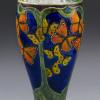

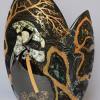
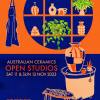
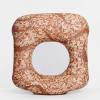
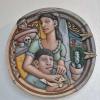
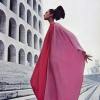
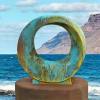
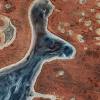
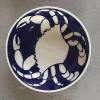
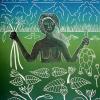
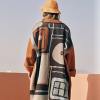
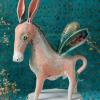
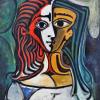
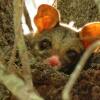
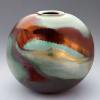
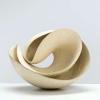
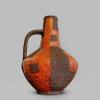
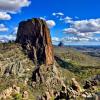
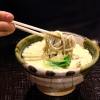
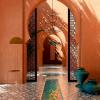
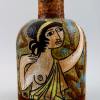
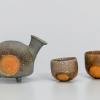
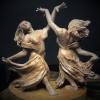
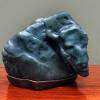
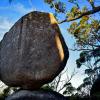
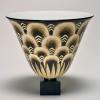
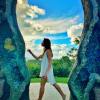
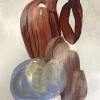
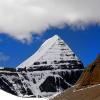
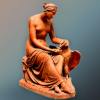

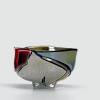
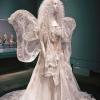
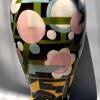
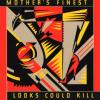
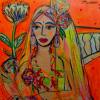
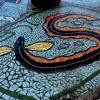
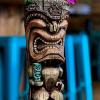
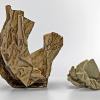
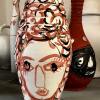
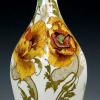
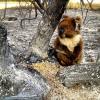
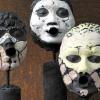
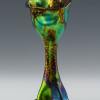
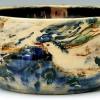
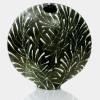
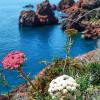
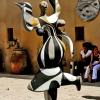
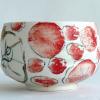
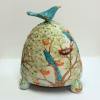

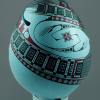
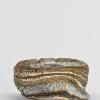
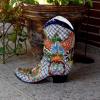
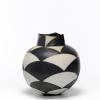
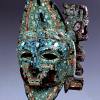
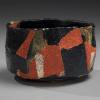
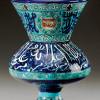

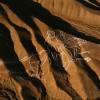
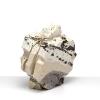
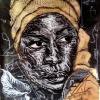
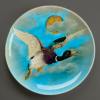
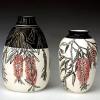
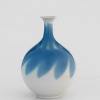
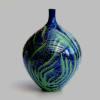
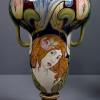
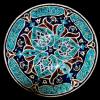
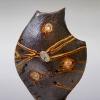
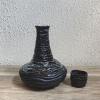
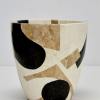
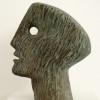
3 Comments
You have a great site’ thank you for the inspiration!
All the sculptures in the site (Victors Way) are hand carved,each chisel lasted only a couple of minutes,so hundreds had to be fired constantly.
Enjoy.
Yes, all of these sculptures are really good. The submerged one in Bali I have seen that myself on my first visit to that beautiful Island.
This is a beautiful blog. Thank you